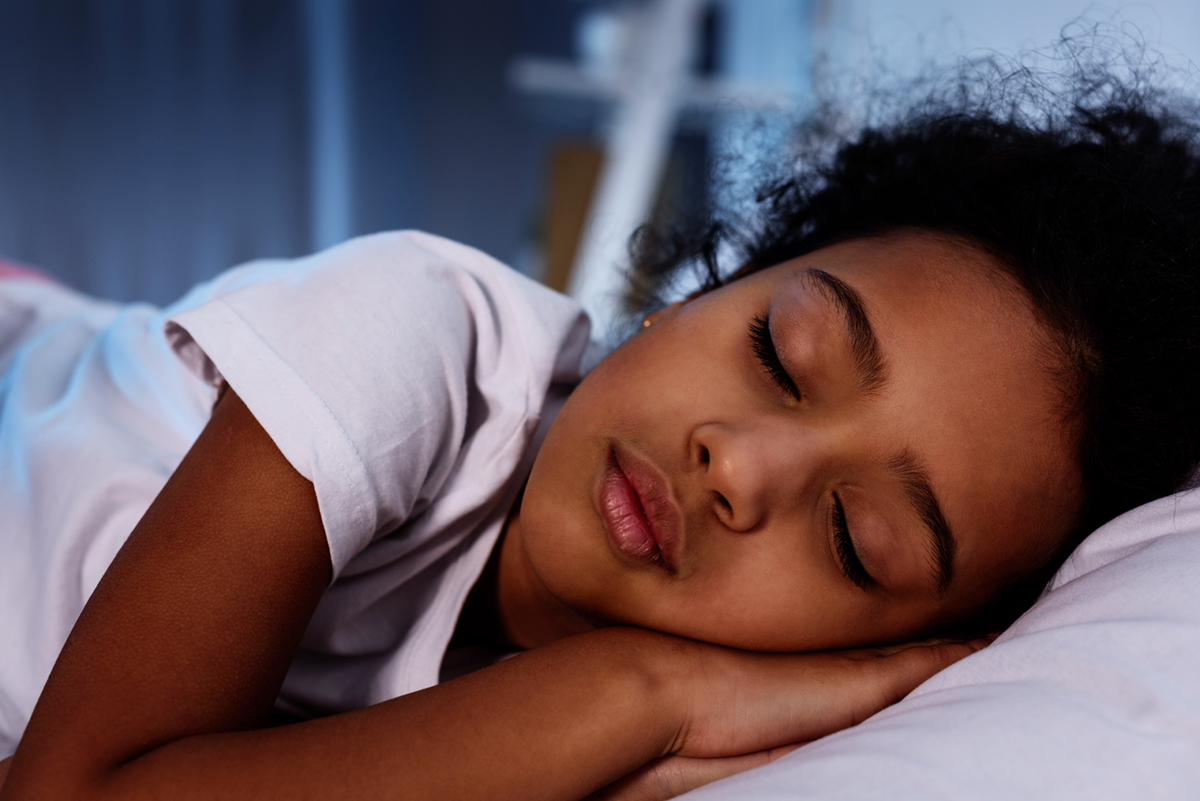Table of Contents
 Sleep: it’s something so many of us just don’t get enough of. And with today’s busy schedules and long lists of after-school activities, many children just aren’t getting the sleep they need. But sleep has a huge impact on your child’s physical and mental development, so it’s something all parents need to pay attention to.
Sleep: it’s something so many of us just don’t get enough of. And with today’s busy schedules and long lists of after-school activities, many children just aren’t getting the sleep they need. But sleep has a huge impact on your child’s physical and mental development, so it’s something all parents need to pay attention to.
Why Is Sleep So Important for Kids?
The importance of sleep goes way beyond the idea of being well-rested. And while it’s important for everyone, it plays a key role in growth and development in kids. As you and your children sleep, your bodies move through cycles of active (REM) and quiet (non-REM) sleep. According to the National Sleep Foundation, the “quiet” phase of the sleep cycle is when some really important things happen. Quiet sleep is when tissue growth and repair happen and when important hormones are released for growth and development. For adults, sleep is a time of repair and restoration, while in children it’s a crucial time when their bodies grow and brains develop.
What Are Some of the Problems Lack of Sleep Can Cause?
According to the American Academy of Pediatrics, lack of sleep on a regular basis can cause a number of serious physical and emotional problems, including irritability, trouble focusing, high blood pressure, obesity, headaches and depression. Good sleep habits lead to a healthier immune system, better school performance and better overall mental health according to the AAP.
How Much Sleep Do Children Need?
Needs vary by child, and some children may need a little less sleep than their peers. However, there are some well-researched guidelines to help parents get a sense of what their children need. These may be a bit eye-opening for many parents, and we know they can be challenging to achieve as children get busier and more active in their school years. But these are excellent goals to shoot for and often more realistic for younger children.
Sleep guidelines for children from the American Academy of Sleep Medicine:
- Infants 4 to 12 months: 12 to 16 hours, including naps
- Toddlers 1 to 2 years: 11 to 14 hours, including naps
- Preschoolers 3 to 5: 10 to 13 hours, including naps
- Elementary schoolers 6 to 12: 9 to 12 hours
- Teens 13 to 18: 8 to 10 hours
How Can I Help My Child Get More and Better Sleep?
As children reach school age, there are so many demands on their time, including sports and other activities, homework and screen time. But there are relatively easy ways to fit a good night’s sleep into your schedule. The AAP has some useful tips for fostering a positive sleeping environment and helping your child get the sleep they need.
- Make sleep a family priority by setting a good example with your own sleep habits.
- Keep a daily routine with set waking and bedtimes and meal times as much as possible.
- Set up a sleep routine: the AAP’s Brush, Book, Bed plan is a simple and helpful routine, encouraging children to brush teeth and wind down with a storytime or a good book before sleep.
- Limit screen time: AAP recommends keeping all screens, including televisions, computers, laptops, tablets, and phones out of children’s bedrooms, especially at night. Help children’s brains relax by turning off all screens at least 60 minutes before bedtime.
- Create a “sleep-supportive environment” with a calm, quiet room with minimal distractions.
- Be active during the day with sports, family activities outside play and fresh air. This makes children tired in a positive way and ready to fall and stay asleep.
- Avoid overscheduling. This is a tough one for many families but would be a big help in creating a sleep-friendly family routine.
Remember, an occasional late night won’t hurt, especially as your child gets older. But a consistent, restful routine is key–even if it means cutting out a few activities.
Does My Child Have A Sleep Disorder?
In some cases, children’s sleep problems may go beyond the need for a good routine and an earlier bedtime. According to the American Academy of Family Physicians, as many as 50 percent of children experience sleep problems, while around four percent are diagnosed with formal sleep disorders. Sleep disorders in children can include sleep apnea, sleepwalking, night terrors and behavioral insomnias (the inability to fall or stay asleep).
If you suspect your child may have a sleep disorder, the AAP recommends talking with your child’s teachers or childcare providers about their alertness during the day. And of course, talk with your pediatrician if you suspect a sleep disorder. We’ll help you set up a sleep study with a specialist and support you along the way.
Talk to Your Pediatrician About Your Child’s Sleep Habits
At Loudoun Pediatric Associates, your child’s sleep habits are one of the most important topics we’ll cover during well visits. We want to know how our patients are sleeping, and it’s important to have an honest conversation and share any concerns. The practitioners at LPA have suggestions and recommended reading on everything from getting babies to sleep through the night to managing sleep concerns in older children and teens. Sleep problems in children can be a big source of stress for families, and we want our patients to know we’re here to support them in their efforts to get everyone rested and ready for a healthy, successful childhood.







